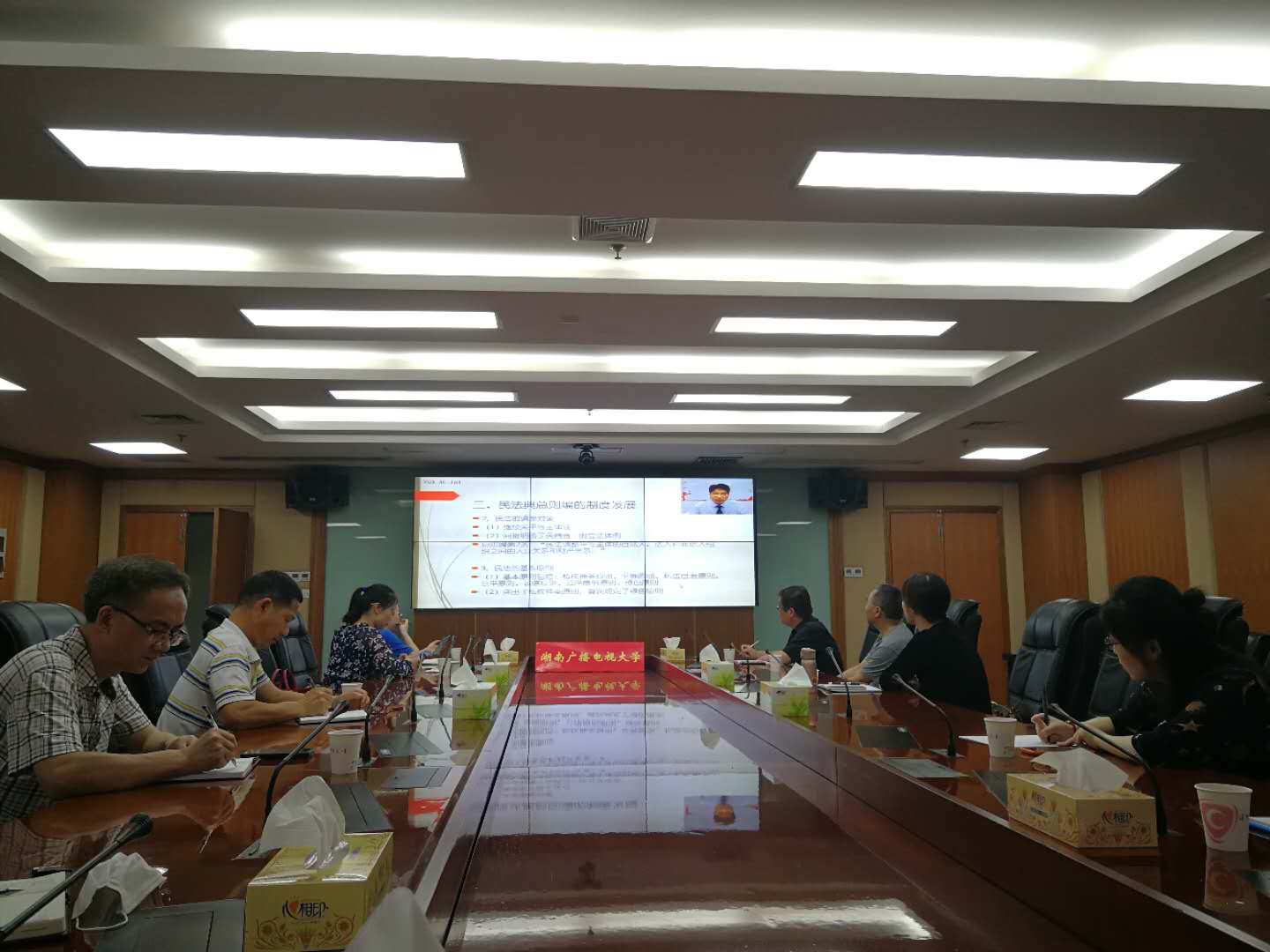 A series of open classes on the Civil Code produced by the Open University of China (OUC) debuted on the afternoon of 3 June 2020.
A series of open classes on the Civil Code produced by the Open University of China (OUC) debuted on the afternoon of 3 June 2020.
The opening lecture, delivered by Professor Zhou Youjun from the School of Law, Beihang University, was entitled The Institutional Development of the General principles of the Civil Code in China. Over 170,000 teachers and students from across the OUC system, as well as other members of society, watched the live open classes via one of a number of online live streaming platforms.
Professor Zhou started the lecture by citing the important speech general secretary Xi Jinping gave during the 20th collective study session of the Political Bureau of the Central Committee of the Communist Party of China (CPC). He connected the civil code with the spirit of the constitution, institutional development, and the autonomy of Chinese civil law, and emphasised the significance of the civil code. Professor Zhou summed up the overall achievements of the civil code from five aspects, including carrying forward the spirit of private law and socialist core values and responding to the needs of modern society, gave an in-depth analysis of the institutional development of the general principles of the civil code, and helped learners to understand profound and obscure theoretical issues by combining them with typical case studies.
After watching the live lecture, the teachers and students from the OUC system said that the series of live open courses on the civil code, which brings together experts and big names in the field, is timely and meets their learning needs. The open courses embody the importance of sharing at the OUC and its commitment to serving all people, which helped the teachers and students to improve their awareness of rule of law and increase their sense of trust in the CPC and the central government.
Chen Xiaozhen, a teacher from the OUC’s Zhejiang Branch, commented “Professor Zhou, with his clear thinking and profound and precise professional analysis, has presented a broad picture of the institutional development of the general principles of the civil code. Covering many articles of the general principles, Professor Zhou raised questions and conducted analysis, which has inspired us to expand our exploration and widen our thinking. With these gains and insights, I will spread the concepts and essence of the civil code to a wider range of OUC students, cultivate the concept of rule of law in teaching, and do my best to make China a country with strong rule of law.”
Zhao Xiaoxia, a student in the autumn 2018 undergraduate law programme at the Jinzhou School of the OUC’s Dalian Branch, said that as a law student, he paid special attention to the introduction of the civil code and believes that a sound legal system and improved legislation will help with the great rejuvenation of the Chinese nation.
Li Haiqing, a lawyer from Dalian, said that, as a legal worker, he should carefully study and promote the civil code, take the lead in abiding by the law, and make contributions to the implementation of the civil code by giving full play to his professional advantages.
The series of open courses on the civil code are part of the “Famous Teachers and Quality Courses" project launched by the OUC, the first of its kind. People who worked on the civil code, as well as famous scholars from civil law circles, including Professor Yin Tian, Professor Ma Yinan, and Professor Wang Cheng from Peking University, Professor Zhou Youjun from Beihang University, and Professor Zhao Xudong and Professor Zhai Jiguang from China University of Political Science and Law, were invited to give detailed interpretations of each part of the civil code. In addition, Associate Professor Ye Zhihong and Dr. Xue Shan from the OUC will present their interpretations.
The open courses were launched via live stream on 3 June 2020 and they will be held on a regular basis until the end of the month. Refined micro courses will be introduced afterwards.
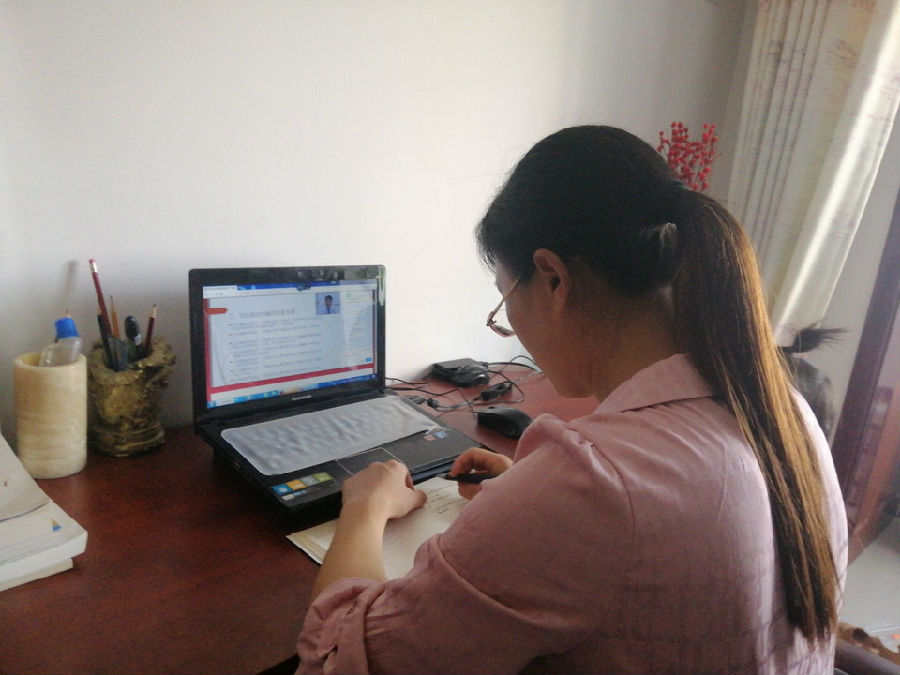
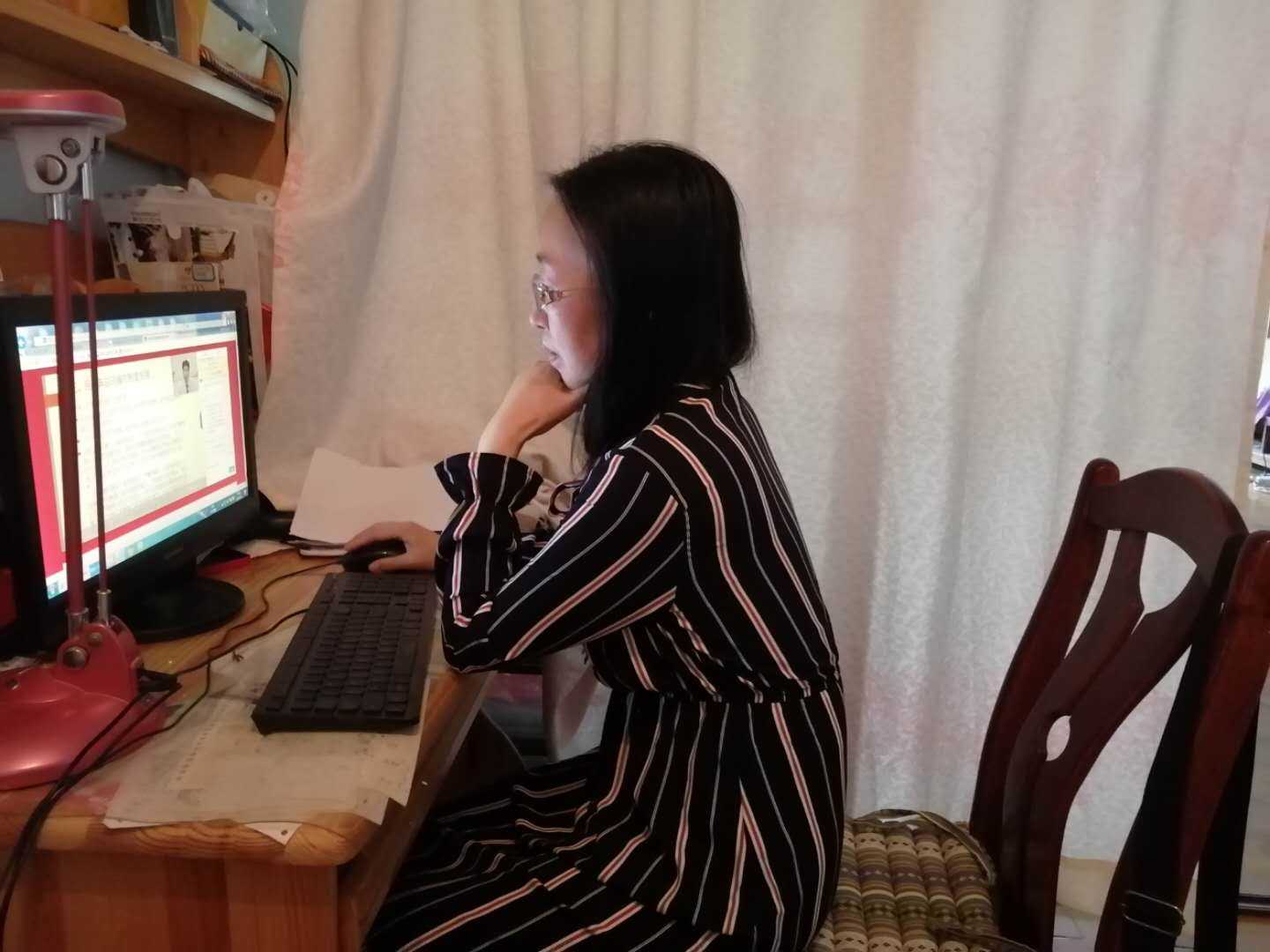

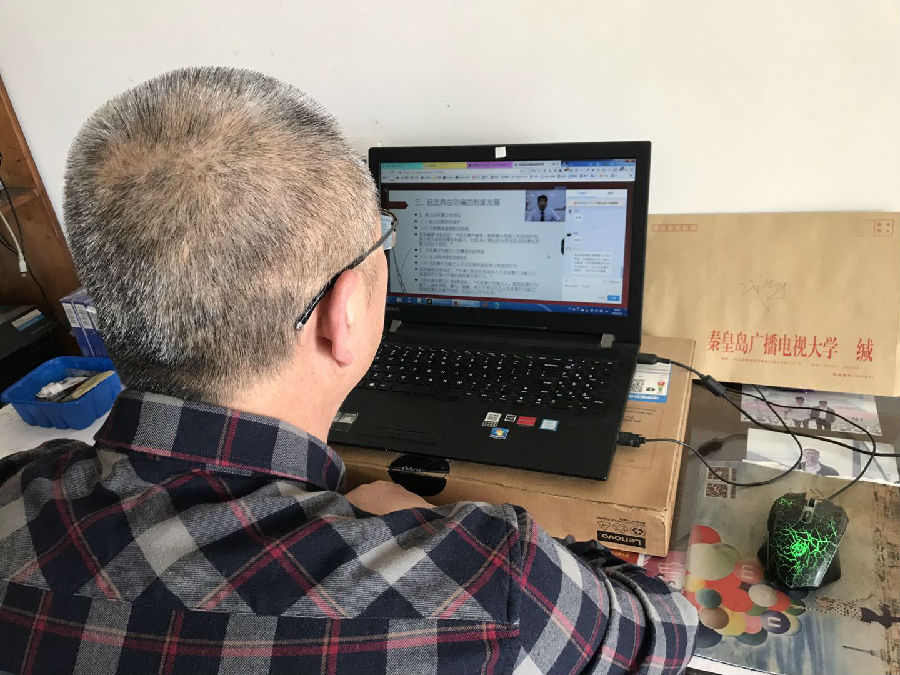
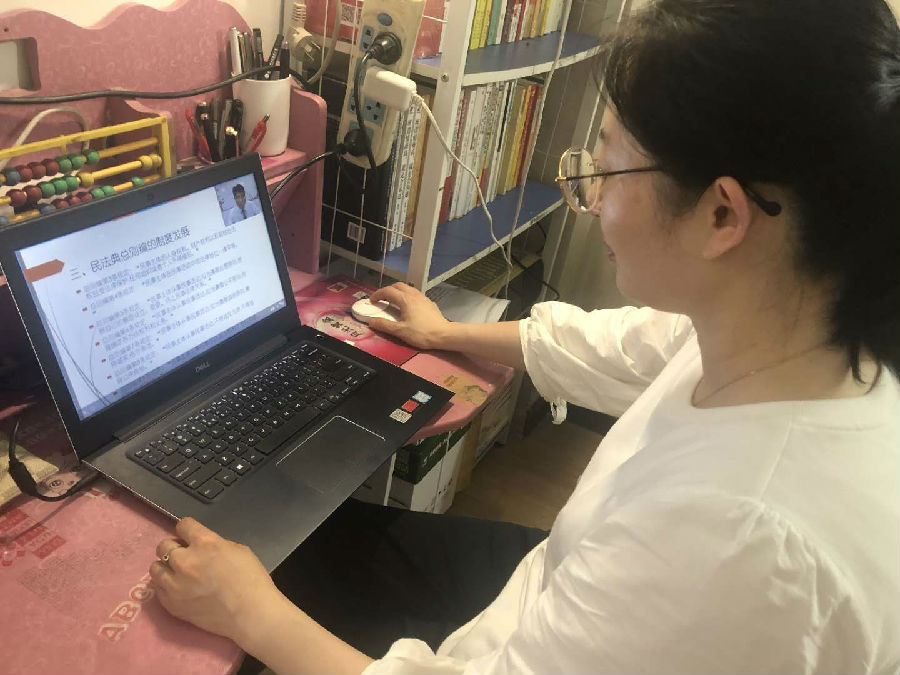

Collective learning of law teachers organised by OUC’s Hunan Branch
By Xue Shan,OUC